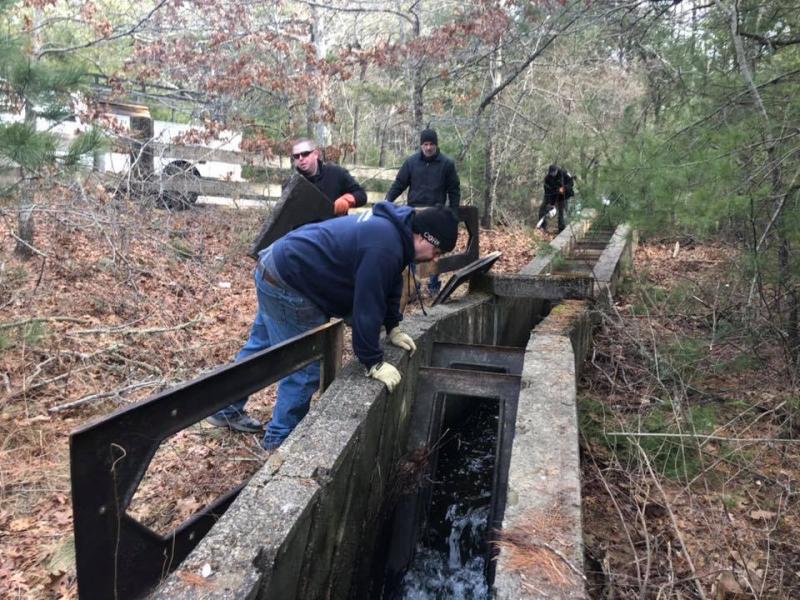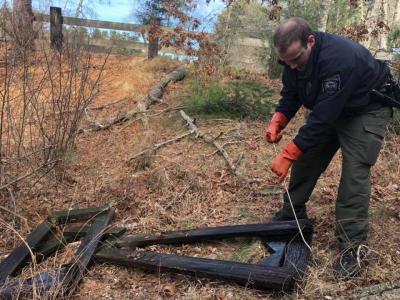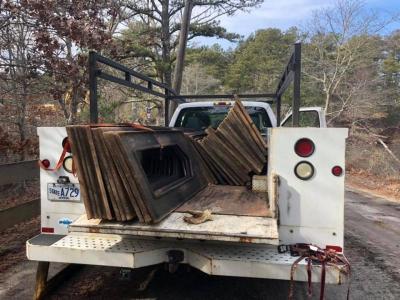Wareham readies for herring run
With Wareham’s annual herring run only a few short weeks away, officials at the Wareham Department of Natural Resources are paving the way for migrating fish with new fiberglass baffles courtesy of Plymouth’s Department of Marine and Environmental Affairs.
The baffles, which replace outdated and waterlogged wooden structures, create fish “ladders”, allowing herring to swim upstream with less effort to spawn. These baffles also displace water, creating pools were fish can rest before continuing their journey.
“The baffles act like a set of walled stairs,” said Wareham Harbormaster Garry Buckminster. “They also provide the fish with alternative routes of travel.”
In total, there are two ladders in Wareham which the Massachusetts Division of Marine Fisheries helps to maintain: one at Glen Charlie Pond and another by the Elks at Agawam Mill Pond.
Two species of river herring, alewifes and blueback herring, travel through these ladders on their way to Halfway Pond in Plymouth.
Both are anadromous fish, meaning that they live most of their lives in the ocean but return to streams and ponds to lay their eggs, like salmon.
Herring return to the same stream where they were born to lay their eggs each year. Unlike salmon, however, herring cannot jump out of the water to clear obstacles when their paths become blocked.
“It’s a grueling journey,” Buckminster said. “And a lot of them don’t make it spawn, so these ladders are extremely important for the survival of the species.”
The State of Massachusetts outlawed herring harvesting in 2005 after riverine herring populations dropped precipitously in 2000 after an almost-as-dramatic increase during the 1990s.
Officials blame midwater trawlers, fishing vessels that use large nets to scoop up schools of bluefish, tuna and striped bass and inadvertently catch and kill the herring that they are feeding on.
Of course, there are other threats to the fish as well.
“Last year, we had a seal camping out in one of the runs,” Buckminster said. “He ate pretty well.”
The herring are expected to begin their migration in March, but as Buckminster noted, “every year is different.”
To learn more about river herring in Massachusetts, visit www.riverherringnetwork.com.

















